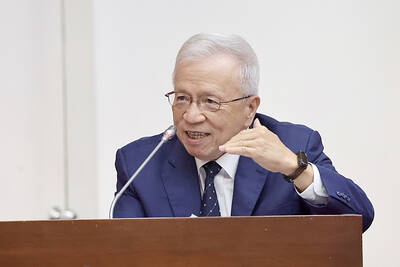India’s fuel demand grew for a 15th straight month as rising automobile sales and declining crude oil prices encouraged higher consumption of gasoline and diesel.
Fuel use last month increased 13 percent from the previous year to 15.71 million tonnes, according to calculations based on preliminary data posted on the Web site of the Indian Oil Ministry’s Petroleum Planning & Analysis Cell.
That is the fastest rate of year-on-year growth since October last year.
Demand slipped 1 percent from a record high in December last year.
GASOLINE
Gasoline use jumped 11 percent to 1.82 million tonnes, while consumption of diesel, which contributes 40 percent of the nation’s total fuel use, rose about 8 percent to 6.28 million tonnes.
The nation’s fuel demand growth would average approximately 5 percent this year and next year, Singapore-based BMI Research analyst Peter Lee said.
“Our short-term outlook on India’s oil demand growth is quite bullish,” Lee said by e-mail yesterday. “Government figures show that gasoline and automotive diesel demand held up over 2015 and we expect this trend to persist for some time alongside strong growth in car sales, which will drive up domestic demand for transport-related fuels.”
PASSENGER CARS
Sales of passenger vehicles in India from April to December last year increased 9.05 percent over the same period the previous year and are forecast to rise 10 percent during the fiscal year to March 31, beating an earlier forecast, the Society of Indian Automobile Manufacturers said.
“There is disposable income and people are buying automobiles,” Bharat Petroleum Corp marketing director K.K. Gupta said in a telephone interview from Mumbai on Thursday. “The fuel consumption growth in rural and semi-urban regions is almost double of that in the bigger cities.”
Along with China, the two nations will account for more than half of the increase in world oil consumption over the next two decades as vehicle use expands, according to BP Energy Outlook.

JITTERS: Nexperia has a 20 percent market share for chips powering simpler features such as window controls, and changing supply chains could take years European carmakers are looking into ways to scratch components made with parts from China, spooked by deepening geopolitical spats playing out through chipmaker Nexperia BV and Beijing’s export controls on rare earths. To protect operations from trade ructions, several automakers are pushing major suppliers to find permanent alternatives to Chinese semiconductors, people familiar with the matter said. The industry is considering broader changes to its supply chain to adapt to shifting geopolitics, Europe’s main suppliers lobby CLEPA head Matthias Zink said. “We had some indications already — questions like: ‘How can you supply me without this dependency on China?’” Zink, who also

At least US$50 million for the freedom of an Emirati sheikh: That is the king’s ransom paid two weeks ago to militants linked to al-Qaeda who are pushing to topple the Malian government and impose Islamic law. Alongside a crippling fuel blockade, the Group for the Support of Islam and Muslims (JNIM) has made kidnapping wealthy foreigners for a ransom a pillar of its strategy of “economic jihad.” Its goal: Oust the junta, which has struggled to contain Mali’s decade-long insurgency since taking power following back-to-back coups in 2020 and 2021, by scaring away investors and paralyzing the west African country’s economy.

Taiwan Semiconductor Manufacturing Co (TSMC, 台積電) received about NT$147 billion (US$4.71 billion) in subsidies from the US, Japanese, German and Chinese governments over the past two years for its global expansion. Financial data compiled by the world’s largest contract chipmaker showed the company secured NT$4.77 billion in subsidies from the governments in the third quarter, bringing the total for the first three quarters of the year to about NT$71.9 billion. Along with the NT$75.16 billion in financial aid TSMC received last year, the chipmaker obtained NT$147 billion in subsidies in almost two years, the data showed. The subsidies received by its subsidiaries —

BUST FEARS: While a KMT legislator asked if an AI bubble could affect Taiwan, the DGBAS minister said the sector appears on track to continue growing The local property market has cooled down moderately following a series of credit control measures designed to contain speculation, the central bank said yesterday, while remaining tight-lipped about potential rule relaxations. Lawmakers in a meeting of the legislature’s Finance Committee voiced concerns to central bank officials that the credit control measures have adversely affected the government’s tax income and small and medium-sized property developers, with limited positive effects. Housing prices have been climbing since 2016, even when the central bank imposed its first set of control measures in 2020, Chinese Nationalist Party (KMT) Legislator Lo Ting-wei (羅廷瑋) said. “Since the second half of